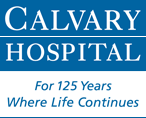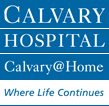Educating the Healthcare Community about Palliative Care — Sharing CalvaryCare®
For centuries, education of physicians around the world has focused on how to cure people of a host of diseases and ailments. While physicians have had many successes, the conversation they ultimately have with some patients is that stopping the progression of their illness is no longer possible. In those cases, Palliative Care is the best choice.
Defining Palliative Care
Over the past three decades, there has been much more awareness than ever before on how Palliative Care can play an important role for patients for whom curative treatment is no longer a
realistic goal. But in order for people to benefit from this specialized care, physicians and other healthcare professionals need to learn about it.
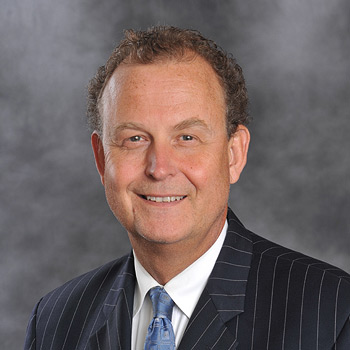
“Palliative Care should be part of the clinical skillset of every primary care physician. This knowledge should not be just for physicians who choose this specialty,” said Christopher P. Comfort, Chief Operating Officer, Calvary Hospital.
“With every passing year, the skyrocketing number of late-stage patients with comorbidity has placed tremendous demand on the medical profession. We need to adequately treat their pain and symptoms, communicate more effectively with patients and their families, and work with them to create and follow realistic care plans. Helping people determine the best way to spend what time that they have left, is a wonderful gift that physicians can give to their patients.”
National Improvements to Palliative Care
“The Palliative Care and Hospice Education and Training Act is currently under discussion in Congress. This is very promising,” said Dr. Comfort.
“Once passed, this bill will affect us on a national level. We will have increased education, research and access to many more healthcare staff with professional training in Palliative Care. Thousands of people of all ages who need this special care will benefit. Calvary puts its full support behind this inclusive and timely legislation.”
The Palliative Care Institute (PCI)
More than 33 years ago, long before the healthcare industry realized how important Palliative Care would become, Calvary recognized that there was no existing resource for doctors and other healthcare professionals to learn about this important subject.
So in 1985, Calvary opened the Palliative Care Institute. Since then, Calvary has taught its unique model of compassionate end-of-life care to healthcare professionals from the United States and more than 30 other countries.
Calvary’s annual visitors include more than 1,000 medical students, residents and post-doctoral fellows from the New York area; Fire Department of New York EMTs training to become paramedics; as well physicians, nurses, and social workers from around the world.
“We realize how fortunate we are to be able to teach the medical community about Palliative Care delivered in a real-life environment,” reported Robert J. Brescia, MD, Director of the PCI and Director of Psychiatric Services.
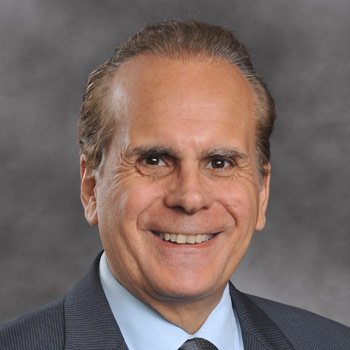
“We welcome hundreds of students each year from nearly every single medical school in this area. Our legacy with future generations of physicians is to make sure that they know when to suggest Palliative Care so that their patients do not suffer needlessly.”
The Palliative Care Institute (PCI) at Calvary Hospital continues to be the leading expert in palliative care across the globe. Our international visitors have taken their Calvary training back home to share with their colleagues; form new nursing programs in Palliative Care; open the first hospice in Palestine, and increase the general awareness of Palliative Care in the Middle East, a part of the world that is underserved by Palliative and End-of-Life Care.
Calvary Hospital takes the lead
Under Dr. Brescia’s leadership, Calvary Hospital has risen to the challenge of creating a one-of-a-kind program in palliative care. The PCI has quickly become recognized as the world leader in both education practices and the most up-to-date research in palliative and end-of-life care. The Hospital was designated by the National Cancer Institute (NCI) as an “international training center in palliative care.” This means the program will continue to gain momentum in international cooperation and training, bringing more and more medical practitioners from around the globe to Calvary Hospital to learn.
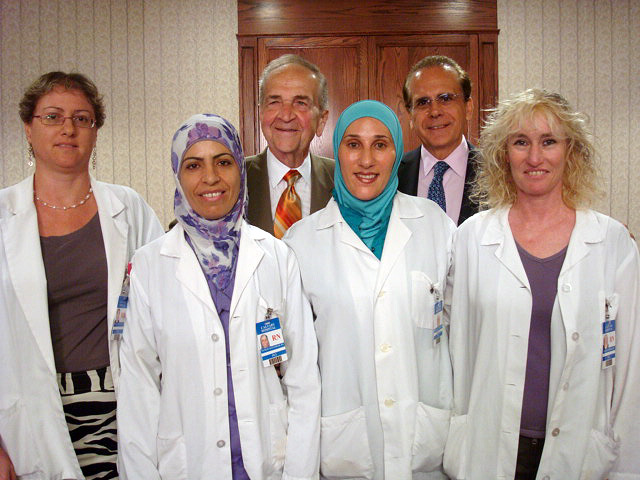
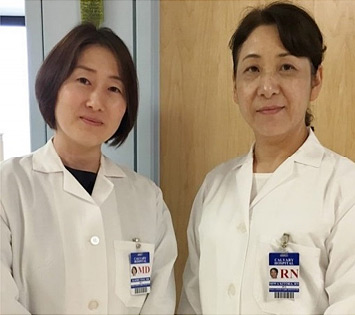
PCI Research
Dr. Brescia has spent his career working on investigating the emotional and psychiatric suffering of patients with advanced disease and their families for more than 28 years. He uses his experience working with the terminally ill to spur his research goals and to continually expand the impact of the PCI.
During his career, he has personally treated more than 12,000 patients in their last days of life. He has also spent time lecturing extensively on the psychiatric care of the terminally ill. He remains actively involved in research2 studies involving the issues of advanced cancer patients and their families. His research includes a collaborative study with Memorial Sloan Kettering Cancer Center investigating “The Desire for a Hastened Death in Terminally Ill Cancer Patients” and also “Family Focused Grief Therapy.”
Additionally, Dr. Brescia continues to work with Fordham University on “Measuring Hopelessness at the End of Life”. The research projects contribute to the continuing successes of the programs of care at Calvary Hospital.
To learn more about Calvary: www.calvaryhospital.org
1: prweb.com/releases/calvary_hospital_to_offer_annual_bereavement_course/prweb16056183.htm
Categories
Archives
- July 2024
- May 2024
- April 2024
- March 2024
- February 2024
- December 2023
- November 2023
- October 2023
- August 2023
- July 2023
- June 2023
- May 2023
- April 2023
- March 2023
- January 2023
- December 2022
- October 2022
- August 2022
- July 2022
- June 2022
- April 2022
- March 2022
- February 2022
- January 2022
- October 2021
- September 2021
- August 2021
- July 2021
- June 2021
- May 2021
- April 2021
- March 2021
- February 2021
- December 2020
- November 2020
- October 2020
- September 2020
- August 2020
- July 2020
- May 2020
- April 2020
- March 2020
- February 2020
- January 2020
- December 2019
- November 2019
- October 2019
- September 2019
- August 2019
- July 2019
- May 2019
- April 2019
- March 2019
- February 2019
- January 2019
- December 2018
- November 2018
- October 2018
- September 2018
- August 2018
- July 2018
- June 2018
- May 2018
- April 2018
- December 2017
- November 2017
- October 2017
- September 2017
- August 2017
- July 2017
- June 2017
- May 2017
- April 2017
- April 2012
